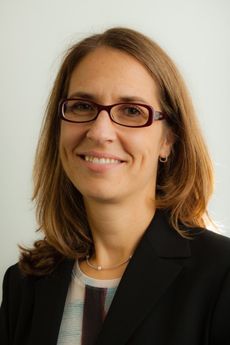Grant launches center on the physics of cancer metabolism
The mechanisms controlling how breast cancer develops, spreads to other parts of the body and responds to therapy remain poorly understood, but researchers from the Cornell University College of Engineering and Weill Cornell Medicine hope to change that through the Center on the Physics of Cancer Metabolism — a new multi-institutional translational research unit to be established with a National Cancer Institute grant.
On Aug. 25 New York Sens. Kirsten Gillibrand and Charles Schumer announcedfirst-year funding for the center of $1.9 million. The grant could total $9.3 million over five years.
Led by Dr. Claudia Fischbach-Teschl, an associate professor of biomedical engineering at Cornell University, and Dr. Lewis Cantley, the Meyer Director of the Sandra and Edward Meyer Cancer Center at Weill Cornell Medicine, other partners include researchers from Memorial Sloan Kettering Cancer Center, the University of Texas MD Anderson Cancer Center and the University of California, San Francisco. The partnership will also foster collaborations across the Ithaca campus among researchers from the College of Engineering, the College of Arts and Sciences and the College of Veterinary Medicine.
The goal of the center is to combine the strengths of different interdisciplinary research groups to gain unprecedented understanding of the biological and physical mechanisms regulating how tumors function and metastasize, or spread, in the human body's microenvironment.
Dr. Cantley's expertise in cancer metabolism, which has led to several breakthroughs in the field, dovetail with Dr. Fischbach-Teschl's acumen in engineering of cancer models to enable the team to explore tumor development, progression and metastasis from a completely new perspective. Complemented by other investigators' expertise in micro- and nanofabrication, imaging and computational approaches, they can monitor and predict tumor metabolism and cell migration, and test drugs or other therapies in a patient-specific manner.
"The physical scientists in Ithaca are bringing technologies that don't exist here at Weill Cornell Medicine," Dr. Cantley said.
Dr. Fischbach-Teschl said teams in Ithaca will also benefit from access to patient samples and clinical knowledge that will be provided by Weill Cornell Medicine and other partners. The ultimate goal, she said, is to develop new therapeutic approaches to breast cancer, and eventually other types such as prostate and pancreatic cancer.
"Doing validation studies with patient-derived cells is always the end goal and we've done that, but we haven't done it as extensively because the resources are not there," Dr. Fischbach-Teschl added.
The center will focus on three main research areas over the next five years: the mechanisms that regulate tumor metabolism and how obesity affects the process; how membrane-surrounded vesicles produced by tumor cells affect their behavior; and the physical and metabolic constraints influencing tumor cell migration.
It will also provide an opportunity for next-generation scientists to receive unique interdisciplinary training, Dr. Fischbach-Teschl said.
"Students and postdocs in Ithaca are going to be trained in applying oncology principles to their engineering-focused study of cancer, and clinical trainees in New York City are getting exposed to the technologies and ideas that we develop here," she said.
Patients will benefit in another way as well: The inclusion of a patient advocacy component will link researchers directly to cancer patients and survivors to share emerging information about the disease with the people it is affecting. And adding the perspectives of patients will inform research approaches, ultimately leading to a more complete understanding of the disease.
"There's an opportunity to understand how to prevent metastasis from occurring, but even if we don't cure cancer, we're going to learn a lot from each other," Dr. Cantley said.



